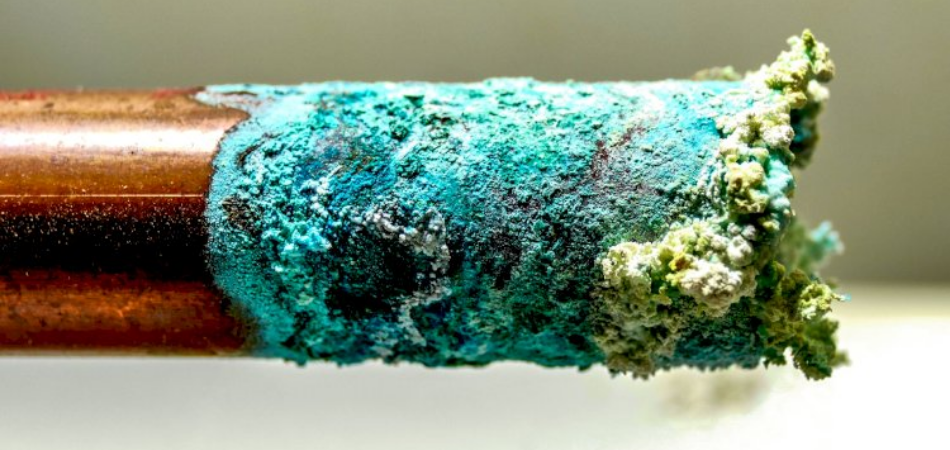In general, metals corrode faster as they move down the galvanic series (or electrochemical series). This is because electrons flow more easily from metals higher to lower in the series. So, why does copper corrode faster than iron?
Copper has a greater tendency to rust than iron because copper is more reactive. Copper reacts rapidly with the oxygen in the air and water, forming a tough layer of black copper oxide (CuO) on its surface that protects it from further corrosion.
Also, there are several reasons that copper corrodes faster than iron, but it is mainly because of its reaction with air and water. Both metals undergo electrochemical reactions because they are both in the same family of metals, meaning they can be used to protect other metals from corrosion.
You can always read further to get more details on this topic below.
Contents
What is Copper Corrosion?
Corrosion can be referred to the situation where an element undergoes oxidation by losing electrons.
Copper like other precious metals when exposed to certain elements which can absorb additional electrons and electrolyte. When this happens, it quickens the movement of metal to oxygen.
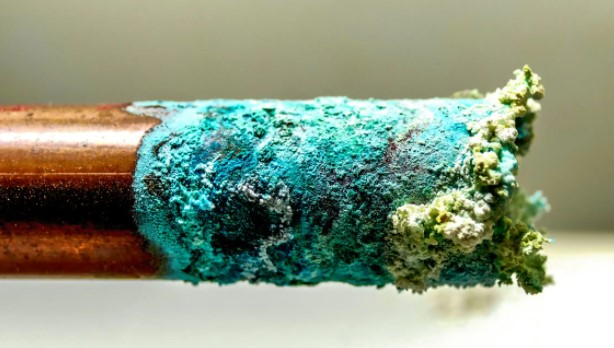
While some metals rust, others like copper corrodes. When iron undergoes oxidation it changes its look to a reddish-brown color while copper looks like a bluish-gray patina.
What Does Copper Oxidation Mean?
Copper with other materials composed of copper alloys oxidize when they stay exposed to several atmospheric conditions. There are several factors which can induce corrosion in copper, they include:
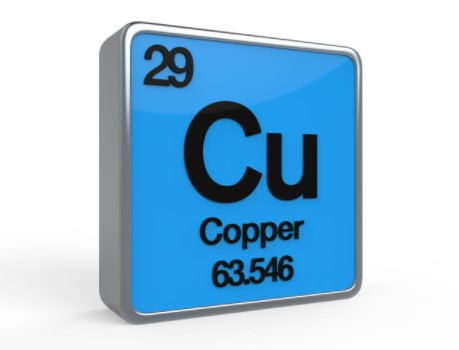
Saltwater
Salt is an active element which speeds up chemical reactions in copper and iron. That is why ships and boats which stay prolonged in seas suffer rust unlike others.
Also cars that stay close to see water have their exhaust and bumper rusting faster. Sodium chloride when mixed with water reacts quickly to oxidation processes. Heat.
Humidity
Copper doesn’t like an environment with excess heat, if where it is kept is exposed to low humidity, it will corrode faster. The best bet is getting a dehumidifier or opening the doors and windows to reduce the heat that can affect copper.
Acidic compounds
There are some acidic compounds which have a negative effect on copper and which can hasten the corrosion process.
Sulfate ferric is a compound which should be kept far away from copper. Also, ammonia and sulfur are compounds which have a significant impact on copper corrosion.
What Are The Effects Of Copper Oxidation?
If iron or other metal oxidizes, it shows a unique reddish-brown coating which doesn’t stay glued to the iron surface for long. In a few moments, it will peel off, thereby leaving the iron exposed to rust and wear.
However, in the case of copper oxidation, it produces a visible Patina coat which many might find appealing. This patina helps the copper stay corrosion-free. This is why many houses use copper in their roofs and plumbing systems.
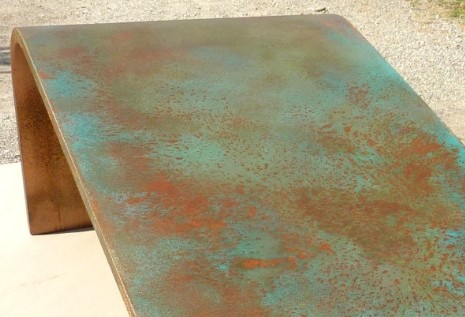
Furthermore, when copper oxidizes, it prevents electrical current from circulating freely, therefore one has to be careful how they use copper for electrical work in the house.
Metals That Can Resist Corrosion Like Copper
While all metals, steels and iron will eventually fall to rust or corrosion, there are some metals which can fight these reactions for a while:
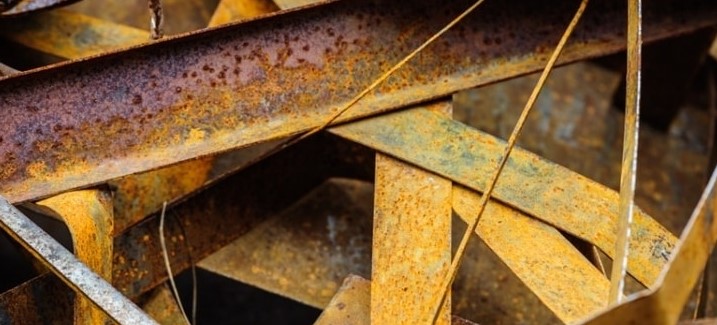
Stainless steel
Stainless steel is often referred to as an alloy with a minimum of 12% chromium deposits. While some stainless steel has nickel, others don’t have the element.
Stainless steel creates a small chromium layer on the metal surface which acts as a preventive measure to quick oxidation. Anytime a crack or tear suffices, there will be a new layer form to prevent further damage.
In locations which are susceptible to corrosion, stainless steel is usually preferred.
Aluminum
Aluminum remains a very reactive metal in the world. It is known to resist corrosion because when it comes in contact with oxygen, it firms a strong layer on its surface.
This layer formation prevents other parts of the aluminum from being affected by atmospheric conditions.
Brass
Brass is another material which can resist corrosion easily. It is an alloy which contains deposits like zinc and slight traces of iron.
Since zinc and iron also emit a thin protective film, brass is highly resistant to corrosion. Because of the copper deposit, brass also shows a green patina on the surface to stop further damage.
Galvanized Steel
When you apply a small layer of zinc to several iron-based alloys like galvanized steel, you are making it more resistant to corrosion. For this metal, it has a zinc-like layer which protects the surface from rust and corrosion.
Precious metals
Other metals which are highly resistant to corrosion include palladium, gold, platinum and silver. This happens because they are very durable and can withstand many harsh weather conditions.
These metals don’t react with oxygen, thereby making it difficult for oxidation to take place. These metals are expensive though which makes it out of reach to many companies.
Types of Copper Corrosion
There are many reasons which might cause corrosion to set in for copper, they are:
Pitting Corrosion
This is common for plumbing systems at homes. Because copper is often exposed to bromine ions, chloride and hypochlorite. This usually triggers pitting corrosion.
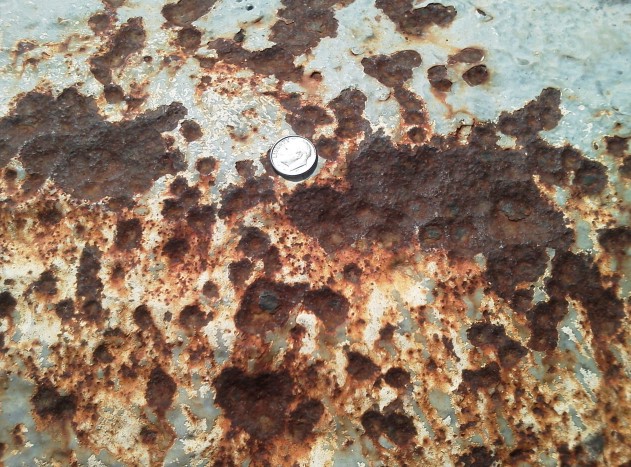
This type of corrosion happens in a confined area and can be difficult to spot. When it happens, it slowly weakens the copper till the plumbing systems start to leak.
Unless you are vigilant, these small leaks can cause huge damage. When these happen, plumbers will have to remove the leaking pipes and cut the affected part and rejoin the leftovers.
Galvanic Corrosion
This form of copper corrosion happens when a copper line which is installed with an aluminum part has issues. Sometimes, there is a problem when copper and metals are connected which might affect the copper.

Conclusion
Corrosion processes differ from one alloy to another because of several factors. So, the question :Why does copper corrode faster than iron? Has been answered in this article.
Copper corrodes faster than iron because it doesn’t easily oxidize any rust like irons.
There are several reasons why copper corrodes and they include lack of maintenance, poor connection and other factors.Moreover, there are other metals which are highly resistant to corrosion like gold, brass and aluminum

